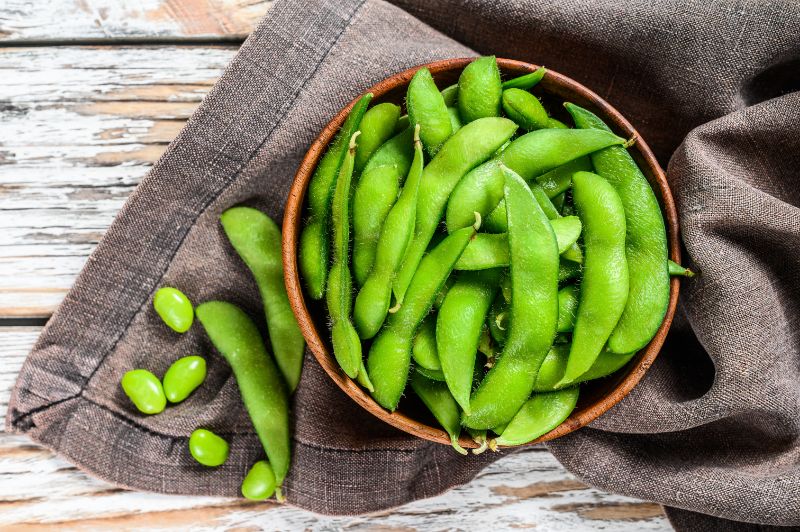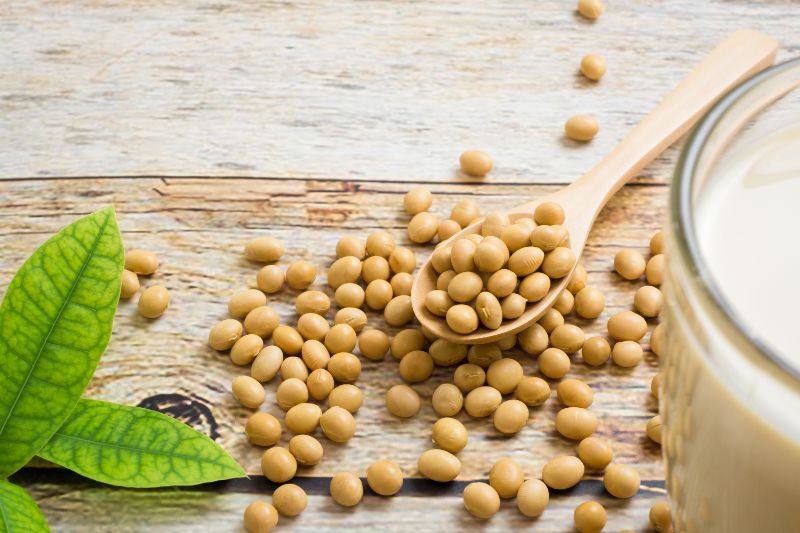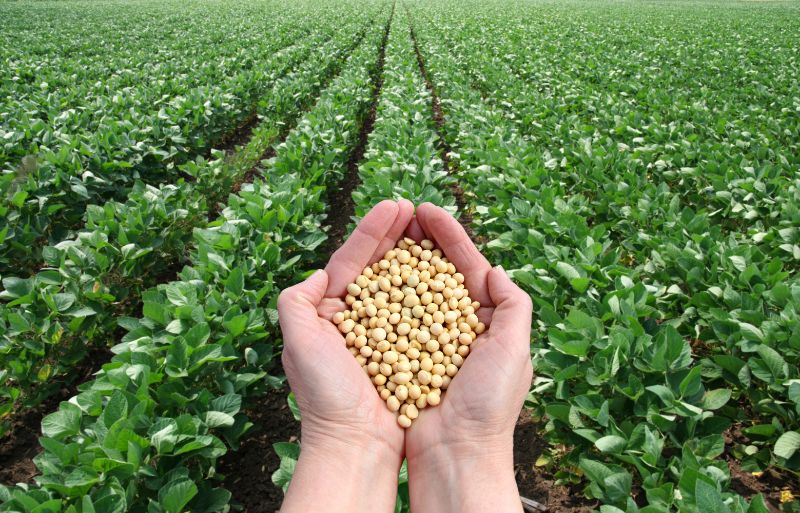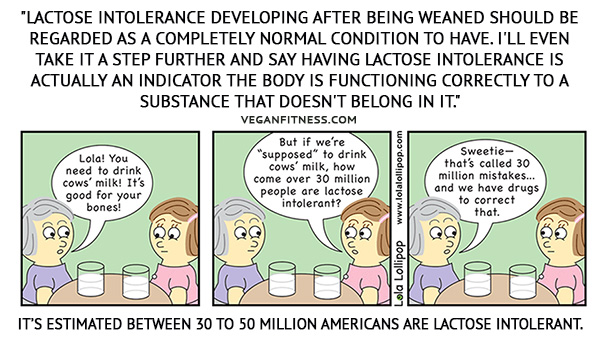
The Truth about Soy - Busting the Myths
The great debate... People seem to be either for soy, or against soy. And people seem to have some very strong opinions.
So we spent some time analyzing the science and investigated further to find out why there's so much conflicting opinion and confusion floating around about this humble bean.

Soy is one of the most researched foods on earth, so firstly let’s take look at some of the commonly believed “facts” about soy and compare this with the research…
#1 “Does Soy Contain Estrogen?”
No - none. Soya contains zero estrogen. (Side note: cow’s milk actually contains plenty of actual mammalian estrogen.[1])
Soya does contain phytoestrogens (plant hormones - not human hormones). Phytoestrogens in the human body are relatively weak and can actually bring benefits, such as a lowered risk of cancer, by 'blocking' actual estrogen.[2]
There is no evidence for soy disrupting sexual development in humans.
Although soya beans are amongst the richest sources of phytoestrogens, it’s worth noting that phytoestrogens are not only found in soya beans. Other beans, such as coffee beans, also contain phytoestrogens.
And phytoestrogens are found in many other foods as well, such as: apples, oats, sesame seeds, flaxseed, lentils, rice, carrots, mint, ginseng, beer, and pomegranates. Even if you completely avoid eating soy, you’re very likely still consuming phytoestrogens - but that’s not a problem.
(N.B. Isoflavones are phytoestrogens and powerful antioxidants. Antioxidants help remove free radicals before they can cause gene mutations potentially leading to cancer. Legumes, particularly soy beans, are the richest sources of isoflavones.)
Many people seem to think consuming phytoestrogens is “bad” but this certainly isn’t the case. The isoflavones contained in soy are actually powerful antioxidants (particularly genistein) and research has shown that they have very positive effects in protecting against cancers and other diseases.[3]
#2 "Will Soy Affect My Fertility?"
The 2003 Department of Health's committee on toxicity report acknowledged that there was no evidence that people who regularly eat high quantities of soya, such as the Chinese and Japanese, have altered sexual development or impaired fertility. It should be remembered that China is the world's most populous nation, with over 1.3 billion citizens, and who have been consuming soya for over 3,000 years.
For women, a large-scale study at a Boston fertility center showed female consumption of soy improved birth rates for couples undergoing fertility treatment.[4]
And for men, soy intake had no negative impact on fertility. A study at Harvard University found men's soy intake was unrelated to the clinical outcomes on fertility. [5]
A 2010 meta-analysis (meta-analysis is a review of the results from many independent scientific studies) of fifteen placebo-controlled studies said that "neither soy foods nor isoflavone supplements alter the measures of bioavailable testosterone concentrations in men.”[6]. Furthermore, isoflavone supplementation has no effect on sperm concentration, count or motility, and it leads to no observable changes in testicular or ejaculate volume.
So men's testosterone is not affected by consuming soy products.
#3 "If men consume soy do they develop 'man boobs' (gynecomastia)"?

There's a single case study[7] (scientifically weak) which reported a 60-year-old man developing breasts, as well as sexual dysfunction, after self-reporting consumption three quarts (metric: almost 3 liters) of soy milk daily for six months. His symptoms went away after discontinuation of the soy intake. We don't know the man's history or any underlying medical complications, and this hasn't been able to be reproduced.
Extreme case studies aside, soy intake appears to be perfectly safe at normal to moderately high levels, even those above the relatively high consumption level of Asian men. Problems may arise when soy is consumed at levels 10x times the norm for several months at a time.
Many people claim that soy consumption will alter sex hormones in men. In several studies examining soy protein or isoflavone supplementation, men did not have significant changes in testosterone, free testosterone, estrogen, sex hormone binding globulin protein, or semen quality.[6]
However if gynecomastia is a particular concern and you aren’t already consuming a plant-based diet please note:
“Cow milk is a source of estrogen in the diet and can constitute as much as 80% of your dietary intake of estrogen, reports Estrogen Dominance Guide. Cows give milk while they are pregnant and nursing, so their estrogen levels are significantly higher. Dairy livestock are also regularly given doses of hormones to increase their growth and milk production. That’s why conventionally raised meats and dairy can contribute to gynecomastia.”
Also, Americans currently spend over $1 billion a year on breast augmentation, so if soy was any good at making breasts larger we'd probably know about it...
#4 "What about soy and cancer?"
The overall research largely points to soy having positive effects on preventing or slowing down cancer growth.
Breast cancer
Studies have shown that regular consumption of soy foods can actually be protective against breast cancer.
Studies show that women who regularly include soy products are less likely to develop breast cancer, compared with other women. In January 2008, researchers at the University of Southern California found that women averaging one cup of soymilk or about one-half cup of tofu daily have about 30 percent less risk of developing breast cancer, compared with women who have little or no soy products in their diets.[9]However, to be effective, the soy consumption may have to occur early in life, as breast tissue is forming during adolescence.
For instance, the traditional Japanese diet has 25-50 mg isoflavones (phytoestrogens) per day in 2-3 servings of soy and may be protective. In nearly 10,000 breast cancer survivors, those who ate more soy after diagnosis had a significant 25% reduction in recurrence at 7.4 years post diagnosis.[10]
Another study on breast cancer survivors showed over a median of 7.3 years as isoflavone intake increased risk of death decreased, with women at the consuming the highest level of isoflavones having a significant 54% reduction in risk of death.[11]
Prostate cancer
A Chinese study[12] found that those who consumed soy had the lowest likelihood of developing prostate cancer, and, even more, soy greatly reduced the risk of the cancer metastasizing, or spreading throughout the body.
Researchers at The Ohio State University found similar results, and found that soy intake led to an improved early immune system response to development of cancer cells.[13]
Ovarian cancer
Several epidemiological studies show that intake of isoflavones is linked with reduced risk of ovarian cancer. The Japan Collaborative Cohort Study, consisting of 64,327 women, found that the intake of tofu may have preventive action against ovarian cancer [14].
A study with American women also found that the group of women with highest isoflavones intake showed lower risk of ovarian cancer [15].
A meta-analysis found that women with highest soy intake showed a 48% lower risk of ovarian cancer than women with the lowest intake. [16]
#5 "But what if I'm allergic to soy?"
Although it’s very rare some people do have a genuine soy allergy and can go into anaphylactic shock if they ingest soy.
However soy allergies within the general population are probably not higher than 0.2% and could be as low as 0.1% (290-580,000 individuals) among the U.S. population.[17]
In contrast around 1.9% of the population have a crustacean (shell fish) allergy and 0.6% of the population have a peanut allergy.[18]

#6 "I don't eat soy because it's genetically modified."
Whilst GMO soy hasn’t been shown to have any negative health consequences in and of itself we can understand people’s concern with not wanting to include GMO foods in their diet. Non-GMO organic soy is available of course, although it’s a bit harder to obtain in some parts of the world.
On his website nutritionfacts.org Dr. Gregor states:
Soy is one of the largest crops in America, and has been subsidized to make cheap animal feed. Most of the soy grown is GMO, but, so far, there is limited data suggesting eating GMO soy is harmful to human health.
Research on human placental tissue, though, does suggest pesticides on GMO soy may have toxic effects, and GMO soybeans are known to have more pesticide residues than conventional and organic soybeans.”[19]
According to Grist.org:
“As of 2004, 85 percent of the U.S. soy crop was genetically modified, accounting for some 63.6 million acres of soybeans. Statistics for 2003 indicate that at least 55 percent of soy worldwide is now genetically modified.”
For those who aren't on a plant-based diet (vegan diet) and are concerned about consuming genetically engineered foods, it would be worth giving some thought to the fact that when these GM soybeans are fed to animals, they end up in the animals’ flesh, eggs and milk. And once the beans are eaten by animals, there is no way to test the meat for the presence of the GMOs.
According to www.gmo-compass.org:
“Despite methods that are becoming more and more sensitive, tests have not yet been able to establish a difference in the meat, milk, or eggs of animals depending on the type of feed they are fed. It is impossible to tell if an animal was fed GM soy just by looking at the resulting meat, dairy, or egg products.”
#7 "Okay, but what about the environmental Impact?"

We agree that conversion of vast amounts of forest to soy plantations in the Amazon is particularly worrying. Deforestation related to soy production in Brazil is responsible for 29% of the country’s greenhouse gas emissions.
Worldwide, the size of land that is devoted to soy cultivation reaches an area the size of Germany, Belgium, France and the Netherlands, combined!
However only 6% of the worldwide soy grown is actually consumed by humans.
Around 80% of the soy grown fed to farmed animals such as chickens, cows, and pigs with the rest being used to create soybean oil.
And that 6% isn’t being consumed just by vegetarians and vegans. It’s mostly being consumed in China, but closer to home soy is everywhere in our food supply.
In The Dark Side of Soy by Mary Vance, she points out soy is in cereals and health-promoting foods and hidden in processed foods. Even if you read every label and avoid cardboard boxes, you are likely to find soy in your supplements and vitamins (look out for vitamin E derived from soy oil), in foods such as canned tuna, soups, sauces, breads, meats (injected under poultry skin), and chocolate, and in pet food and body-care products.
According to Vance, the reason for the ubiquitous presence of soy is simple:
“These days the industry has discovered ways to use every part of the bean for profit. Soy oil has become the base for most vegetable oils; soy lecithin, the waste product left over after the soybean is processed, is used as an emulsifier; soy flour appears in baked and packaged goods; different forms of processed soy protein are added to everything from animal feed to muscle-building protein powders.”
So since (by far) the main use of soy is for animal feed, the logical way to help stop soy-related deforestation is to just stop eating meat.
WWF Germany conducted a report that found that if every citizen of Germany were to lower their consumption of meat, only just enough to meet the country’s dietary guidelines, they would be able to save 1.8 million acres of agricultural land (825,000 hectares of which are specifically in South America).
Additionally, if less people ate meat, more of the crops grown to feed livestock could be redirected to feed people. In fact, if everyone in America were to remove meat from their diet, there would be enough extra grain grown to feed 1.4 billion people!
While an alarming percentage of soybeans are genetically modified, the claim that “all soy is GMO” is one of the great soy myths. Of the soy directly consumed by humans, non-GMO soy foods such as tofu, tempeh and soy milk are widely available, and they are clearly labeled non-GMO.
#8 "Do you need to eat soy if you’re a vegan?"
No - definitely not. It’s easy to be a healthy vegan without consuming any soy at all. There are many people who eat a completely plant-based diet without any soy, as there are so many other delicious foods to enjoy.
#9 "What about soya milk compared to cow milk?"
As we stated earlier, cow milk is a the main source of estrogen in the average diet and can constitute as much as 80% of your dietary intake of estrogen, reports Estrogen Dominance Guide. As cow's milk is taken while the cow is pregnant and nursing, their estrogen levels are significantly higher. Dairy livestock are also regularly given doses of hormones to increase their growth and milk production.
And as stated earlier, soymilk contains zero estrogen, but has twice the antioxidant content than that of cow’s milk.
The estrogen in cow milk is thought to promote cancer growth, whilst the antioxidant effect of the phytoestrogens in soy milk is thought to protect against cancers.
Soy milk usually contains roughly the same amount of protein as cow milk but contains 60% less saturated fat than cow milk (1% fat cow milk was used for this comparison). Soy milk usually contains a little less calcium, but triple the amount of magnesium, which is also a vital mineral for maintaining bone health, and one that is currently being underconsumed by many Americans according to the latest 2015 dietary guidelines released by the USDA.[20]
Many people are lactose intolerant and have real issues digesting dairy products. Far fewer people have issues digesting soy and soy products.

#10 "But don't we need cow milk for healthy bones?"
No, the latest research suggests soy milk is actually much better for bone health.
Osteoperosis (weak/brittle bones) is much more prevalent in countries with the highest consumption of cow milk, and lowest in countries with highest consumption of soy products.
The isoflavones in soy are thought to inhibit the breakdown of bones. Daidzein, an isoflavone found in soy, is actually used to create the drug ipriflavone, which is used throughout Europe and Asia to treat osteoporosis.[21]
A study completed by Erdman in the early 1990's inspired the many studies that followed to investigate the possible benefits of soy on bone health. Erdman's study focused on post-menopausal women who consumed 40g of isolated soy protein daily for 6 months. Erdman found that these women had significantly increased bone mineral density as compared to the controls.
A study published in 2003 by the Oklahoma State University showed that soy protein was more effective in bone formation and retention of calcium inside the body (excreting less calcium in urine) compared to milk protein. In addition, researchers also found that the benefits of soy on bone health were more pronounced in postmenopausal women who were not on hormone replacement therapy.[22]
#11 "So where are all these anti-soya myths coming from?!"
Well, most anti-soya stories can be traced back to one single group in the US called the Weston A Price Foundation (WAPF).
Soy myths and hysteria and the WAPF are inseparable. Much of the fear-mongering around soy is a direct result of misinformation disseminated by the WAPF’s relentless anti-soy campaigns.
The WAPF, registered as a nonprofit organization, is a multimillion dollar operation that lobbies for raw milk and grass-fed beef. Its members (often farmers) make financial contributions and in turn benefit from WAPF promotion. One of the WAPF’s ongoing strategies for promoting animal farming interests is a concerted effort to discredit veganism in general, and soy in particular. Soyfoods sales have climbed from $500 million in 1992 to $5.2 billion in 2011. The soy industry is expanding exponentially, thus posing a potential threat to the products the WAPF are trying to peddle. In response, the Weston Price Foundation actively publishes articles which propagate the supposed dangers of soy consumption, citing clinical and medical journals in an attempt to appear credible.[23]
The WAPF claims to be dedicated to promoting “good nutrition” by restoring nutrient-dense animal products to the diet – particularly unpasteurized "raw" whole milk. It claims that saturated animal fat is essential for good health and that animal fat intake and high cholesterol levels have no link with heart disease or cancer. They say that vegetarians have lower life expectancy than meat-eaters, and that historically humans have always eaten large amounts of animal fat. All this, of course, completely contradicts all the leading health advisory bodies in the world, including the World Health Organisation, American Dietetic Association and the British Medical Association.
This US-based fringe organization is constantly citing scientifically flawed studies to promote their own agenda and has been able to use misinformation to influence a vast number of consumers, duping them into thinking of soya as some sort of dietary pariah.
Another of the organizations supporters was Dr Stephen Byrnes, who published an article in the Ecologist magazine claiming that vegetarianism is unhealthy and is destroying the environment. He boasted of his high animal fat diet and robust health, and unfortunately died of a stroke at 41. There were more than 40 scientific inaccuracies in the said article, including the direct misquoting of scientific studies. Incidentally, the editor of the Ecologist, Zac Goldsmith, is also an honorary board member of the WAPF.
Another of the organizations supporters, Kaayla Daniel PhD, sits on the board of directors and has written an entire book attacking soya ("The Whole Soy Story"). This group appears to spend more time attacking soya than promoting the foods they say we should be eating (unpasteurized "raw" milk, cream, cheese, eggs, liver, etc).
So this solves the mystery of where much of the anti-soy misinformation being spread around actually comes from.
In reality, there is no real scientific evidence that the consumption of soya is harmful to humans. The majority of what the WAPF says is anecdotal, untrue or based on scientifically flawed animal experiments.
First, phytoestrogens have been shown to behave differently in different species, so studies involving animal experimentation are not applicable to humans. Second, the intestines act as a barrier to phytoestrogens, so artificially boosting levels in animals by injection has no relevance to humans. Finally, many of these experiments have exposed animals to phytoestrogens at levels far, far greater than those absorbed by people eating soya.
Conclusion
In summary, you can either choose to eat/drink soy products or choose not to, that's really your choice. There are plenty of other nutritious foods if you choose not to eat soy.
But please, please, do not help the Weston A Price Foundation by spreading their misinformation and flawed science around the internet.
Subscribe to see more!
Love this content?
Receive our awesome newsletter straight to your Inbox!
References
1. http://www.ncbi.nlm.nih.gov/pubmed/19496976
2. Messina M, Barnes S. The role of soy products in reducing risk of cancer. J Natl Cancer Inst. 1991; 83:541-546.
3. http://www.ncbi.nlm.nih.gov/pubmed/14628433
4. http://www.sciencedirect.com/science/article/pii/S0015028214025291
5. http://www.ncbi.nlm.nih.gov/pubmed/26097060
6. http://www.ncbi.nlm.nih.gov/pubmed/19524224
7. http://www.ncbi.nlm.nih.gov/pubmed/18558591
8. http://www.ncbi.nlm.nih.gov/pubmed/19524224
9. Wu AH, Yu MC, Tseng CC, Pike MC. Epidemiology of soy exposures and breast cancer risk. Br J Cancer. 2008;98:9-14.
10. http://www.ncbi.nlm.nih.gov/pubmed/24898224
11. http://www.ncbi.nlm.nih.gov/pubmed/21357380
12. http://www.ncbi.nlm.nih.gov/pmc/articles/PMC4445252/
14. Sakauchi et al. Dietary habits and risk of ovarian cancer death in a large-scale cohort study (JACC study) in Japan. Nutr Cancer. 2007;57(2):138-45
15. Andres et al. Crit Rev Toxicol. Risks and benefits of dietary isoflavones for cancer. Crit Rev Toxicol. 2011 Jul;41(6):463-506.
16. Chang et al. Diet and risk of ovarian cancer in the California Teachers Study cohort. Am J Epidemiol. 2007 Apr 1;165(7):802-13.
17. SichererSH, Munoz-Furlong A, BurksAW,SampsonHA.J. AllergyClin.Immunol. 1Sicher 999;103:559-562. er SH, Burks AW, Sampson HA. Allergy Clin. 1999
18. SichererSH, Munoz-Furlong A., SampsonHA.J. AllergyClin.Immunol. 2004Sicher;114:159-165
19. http://nutritionfacts.org/topics/soy/
20. http://health.gov/dietaryguidelines/2015-scientific-report/06-chapter-1/d1-2.asp
21. http://www.uofmhealth.org/health-library/hn-2869004
22. http://www.ncbi.nlm.nih.gov/pubmed/12629084
23. http://freefromharm.org/health-nutrition/vegan-doctor-addresses-soy-myths-and-misinformation/



 Your email address will always stay private.
Your email address will always stay private.
